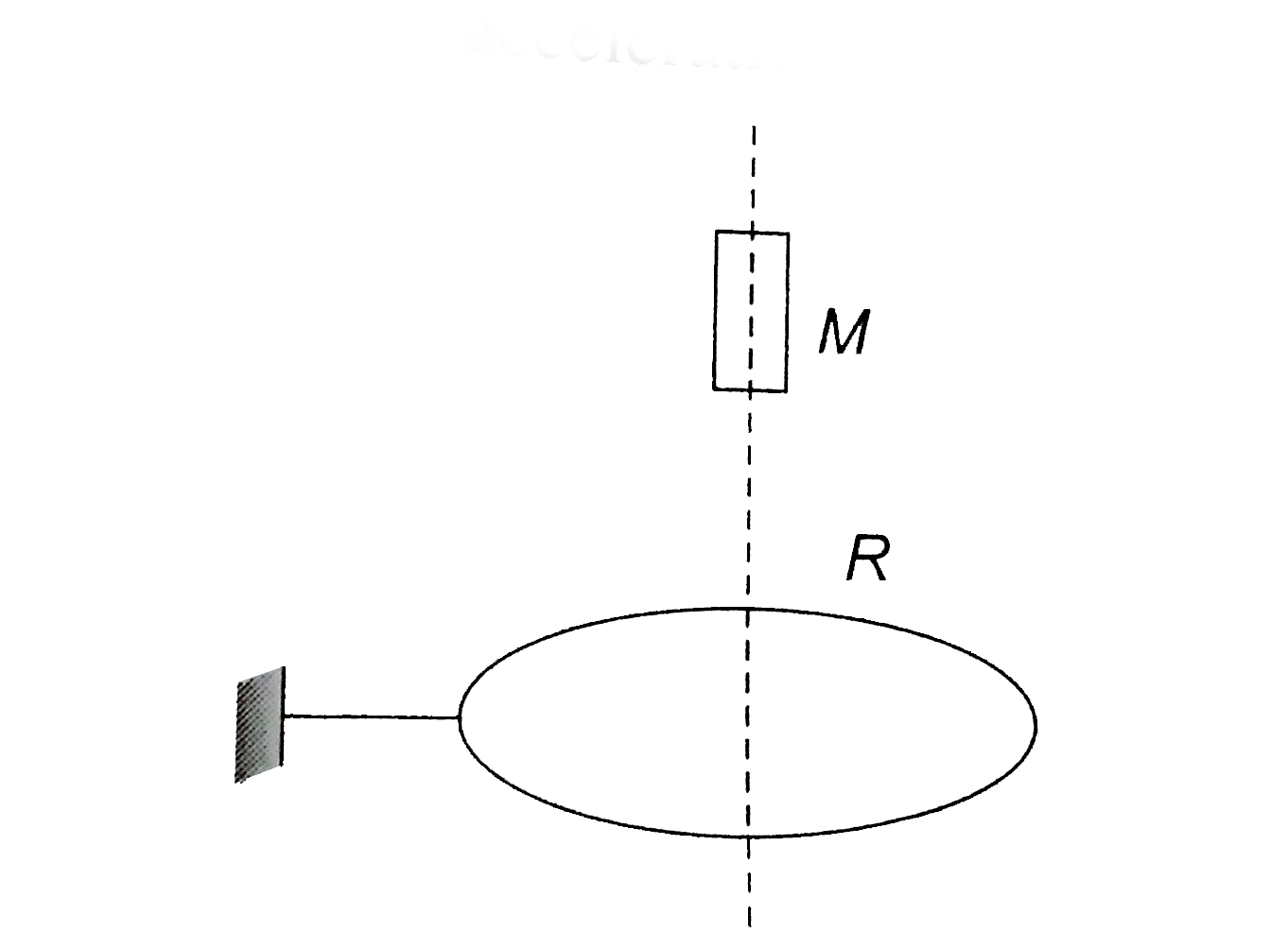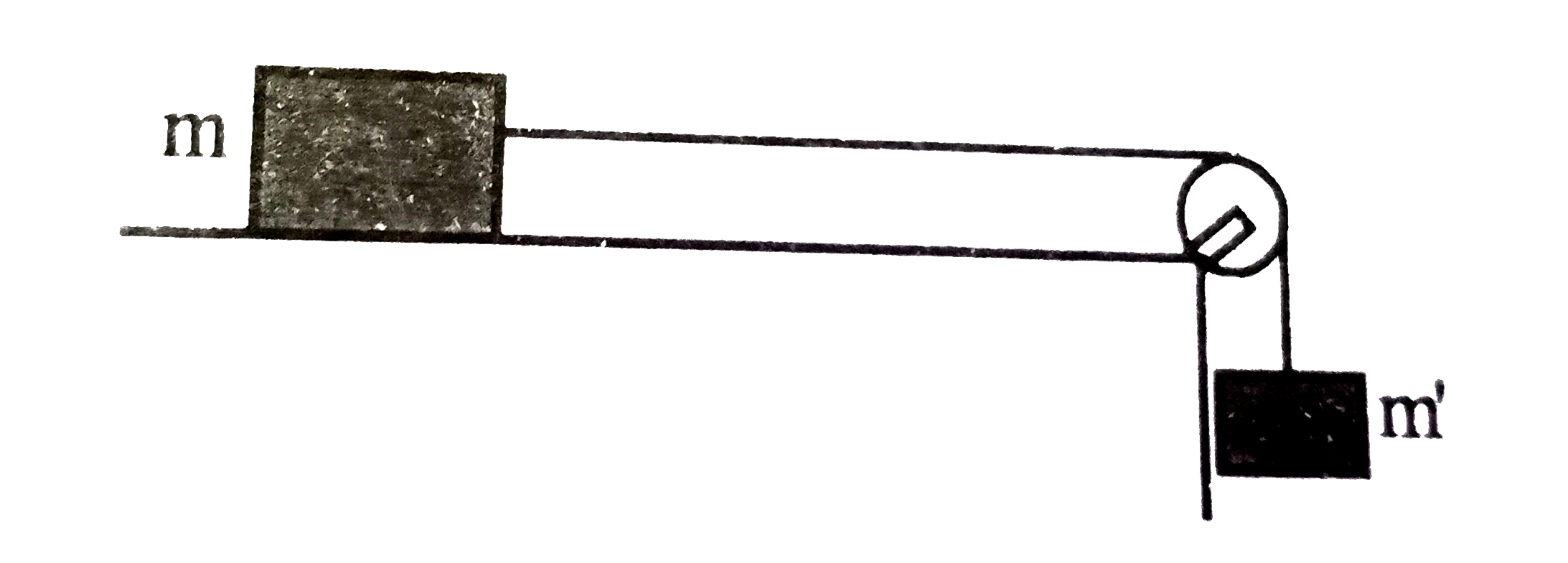A small magnet M is allowed to fall through a fixed horizontal conducting ring R. Let g be the acceleration due to gravity. The acceleration of M will be
(a) <g when it is above R and moving toward R
(b) >g when it is above R and moving toward R
( c) <g when it is below R and moving away from R
( d) >g when it is below R and moving away from R
The correct Answer is:A, C
(a,c):
Use Lenz's law. The motion of ring will be opposed.
Topper's Solved these Questions
- ELECTROMAGNETIC INDUCTIONBOOK - CENGAGE PHYSICSCHAPTER - ELECTROMAGNETIC INDUCTIONEXERCISE - Exercises Asserton - Reasoning
8 Videos
- ELECTROMAGNETIC INDUCTIONBOOK - CENGAGE PHYSICSCHAPTER - ELECTROMAGNETIC INDUCTIONEXERCISE - Exercises Linked Comprehension
36 Videos
- ELECTROMAGNETIC INDUCTIONBOOK - CENGAGE PHYSICSCHAPTER - ELECTROMAGNETIC INDUCTIONEXERCISE - Exercises Single Correct
79 Videos
- ELECTROMAGENTIC INDUCTIONBOOK - CENGAGE PHYSICSCHAPTER - ELECTROMAGENTIC INDUCTIONEXERCISE - QUESTION BANK
40 Videos
- ELECTRON,PHONTS,PHOTOELECTRIC EFFECT & X-RAYSBOOK - CENGAGE PHYSICSCHAPTER - ELECTRON,PHONTS,PHOTOELECTRIC EFFECT & X-RAYSEXERCISE - dpp 3.3
15 Videos
Similar Questions
Knowledge Check
A small magnet M is allowed to fall through a fixed horizontal conducting ring R . Let g be the acceleration of M will be
(i) <g when it is above R and moving towards R
(ii) >g when it is above R and moving towards R
(iii) <g when it is below R and moving away from R
(iv) >g when it is below R and moving away from R
 A(i), (iii)B(ii), (iv)C(i), (ii)D(ii), (iii)
A(i), (iii)B(ii), (iv)C(i), (ii)D(ii), (iii)A short magnet is allowed to fall from rest along the axis of a horizontal conducting ring. The distance fallen by the magnet in one second may be
A5mB6mC4mDnone of theseTwo masses m and m' are tied with a thread passing over a pulley, m' is on a frictionless horizontal surface and m is hanging freely. If acceleration due to gravity is g, the acceleration of m' in this arrangment will be :
AgBmg/(m+m')Cmg/m'Dmg/(m−m')
What is meant by 'free fall' hence define acceleration due to gravity.
View SolutionA bar magnet is falling from some height through a metal ring.
(i) Will its acceleration be equal to acceleration due to gravity (g)?
(ii) If the metal ring is cut, what will be the value of acceleration in that case?
View SolutionAn object falls through a distance h in certain time on the earth. The same object falls through a distance 4h in the same time on a planet. If 'g' is acceleration dur to gravity on the earth then acceleration due to gravity on that planet will be
View SolutionIn the figure given below masses m and m' are tied with a thread passing over a pulley, m' is on a frictionlesss horizontal surface. If acceleration due to gravity is g, the acceleration of m' in this arrangement will be

View SolutionIn the fig. given masses m and m' are tied with a tread passing over a pulley, m' is on a frictionless horizontal surface. If acceleration due to gravity is g, the acceleration of m' in this arrangement will be:-

View Solution

